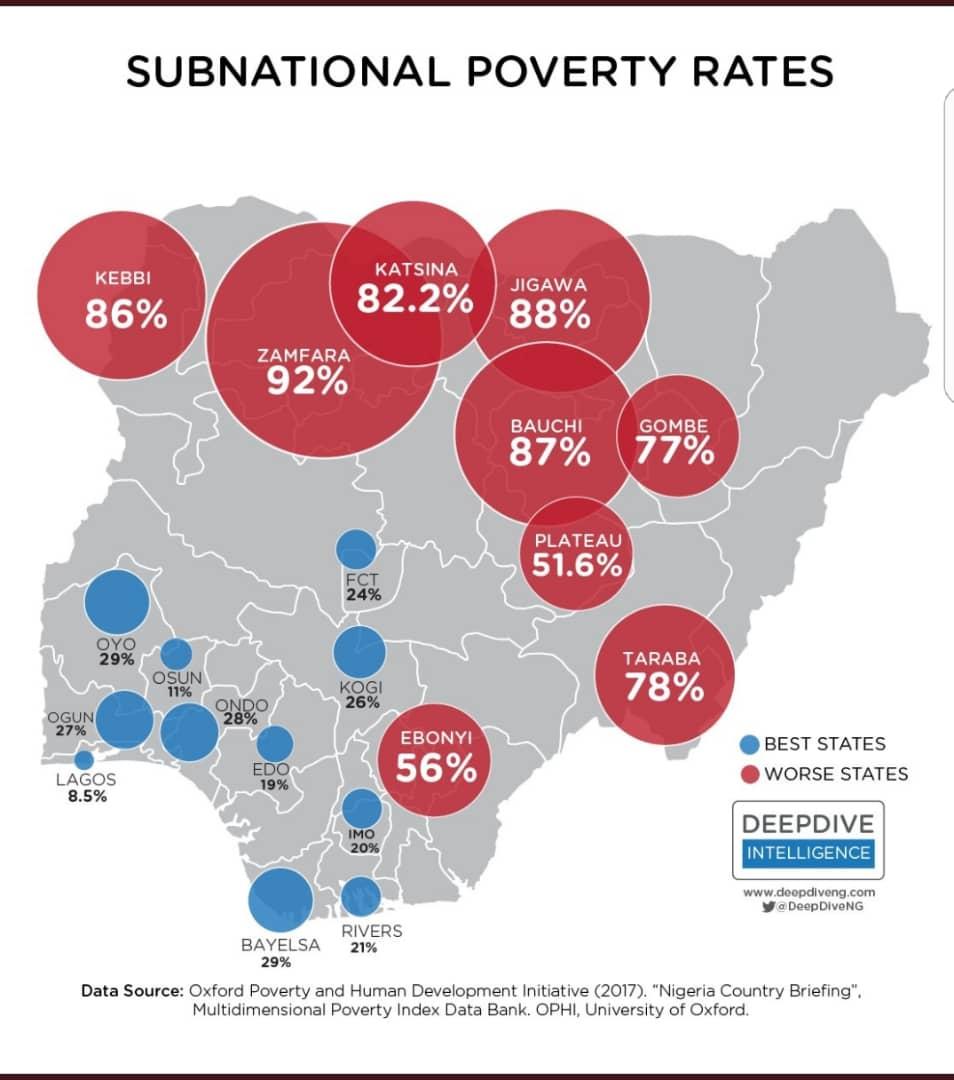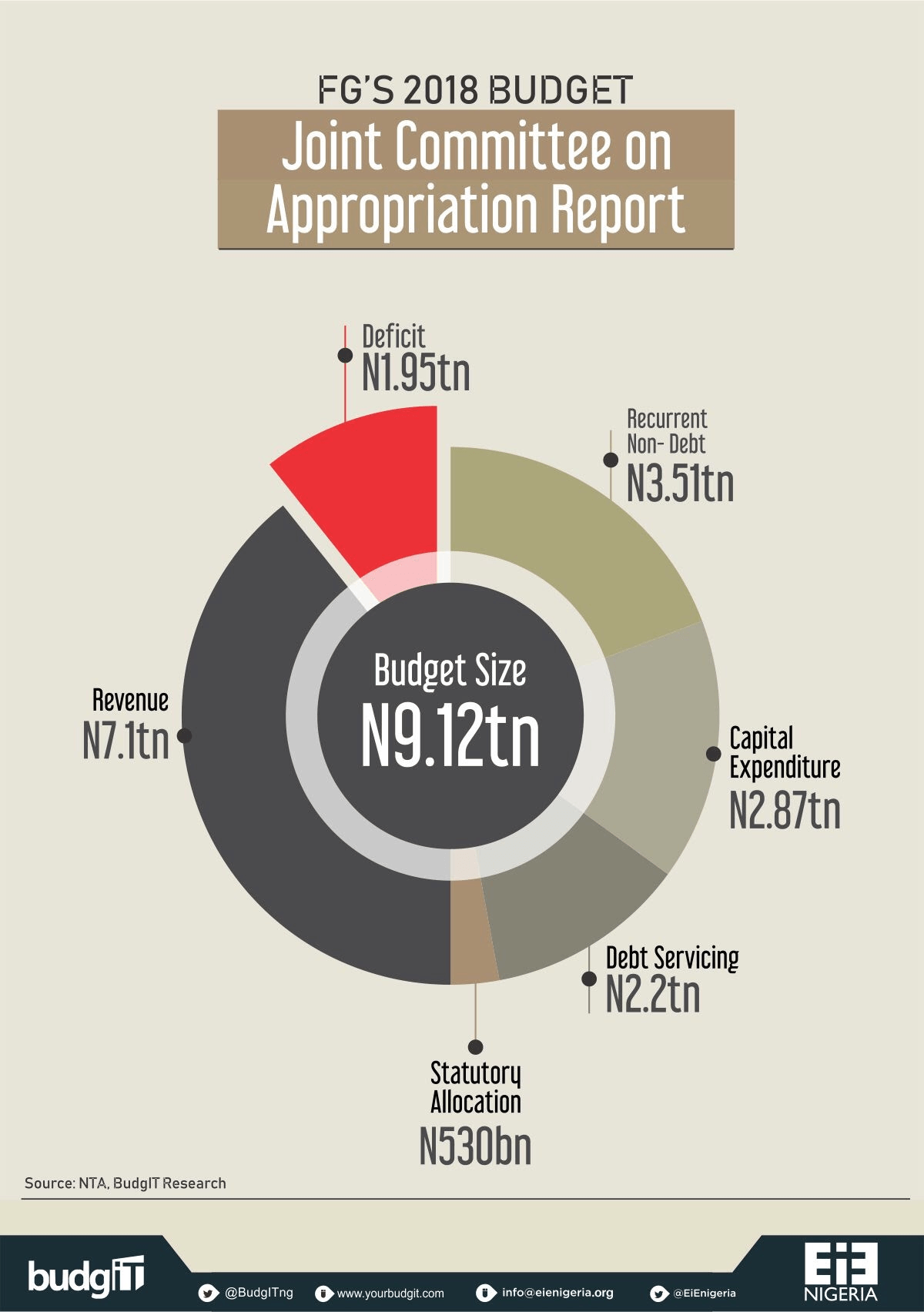What The World Can Learn From Nigeria’s Unfolding Disaster - Politics - Nairaland
Nairaland Forum / Nairaland / General / Politics / What The World Can Learn From Nigeria’s Unfolding Disaster (503 Views)
The Unfolding Binance Situation In Nigeria By Ismail Babalola / 2023: Ameachi’s Turbaning And The Unfolding Politics In APC / What The Igbos Can Learn From The Yorubas - By Joe Igbokwe (2) (3) (4)
(1) (Reply)
| What The World Can Learn From Nigeria’s Unfolding Disaster by PerfectlyPerfect(m): 8:33am On Mar 06, 2019 |
Africa’s most populated country and the world’s 26th largest economy is heading for a meltdown as a direct result of envy politics. It was an election between a multimillionaire pro-business candidate seen as part of the establishment and a self-proclaimed hero of the masses who railed against corrupt elites and promised to fight for the little guy. While this may seem to be the story of pretty much every election nowadays since the shock victory of Donald Trump in 2016, the results of Nigeria’s recent elections contain a very important message from an imperiled country about the dangers of using socialist rhetoric and envy politics as a tool of governance. If the collapse of Venezuela got the world’s attention, the impending collapse of Nigeria, with six times the population of Venezuela, will be positively seismic. This is what happened, and here is how the world can learn from it. ‘Poverty is Good’ Typically decided along ethnic and religious lines, these elections took on a decidedly economic posture, with the generally prosperous South voting as one for the first time in favour of Atiku Abubakar. This was an economically liberal challenger and successful businessman who promised to introduce comprehensive cryptocurrency regulation in his campaign manifesto after Nigerians were forced to become prolific crypto traders due to the woes of the naira, which fell over 85 percent between 2014 and 2016. The largely impoverished North, however, voted almost unanimously for the famously statist incumbent Muhammadu Buhari. Following four years of woeful economic performance, including Nigeria’s first recession in a quarter of a century, Buhari’s campaign message was no longer that fighting corruption would grow the economy – which it clearly failed to do in his first term. The message was something altogether different – that Nigerians should learn to accept poverty as the price for “fighting corruption.”  The glaring economic divide between North and South has been used alongside ethnic and religious politics in the past, but this election was the first time that no attempt was made to promise economic growth to those in need of it. Instead, the message was that poverty in Nigeria is a sign of virtue because only the “corrupt” are able to live well. Populism is Good Politics For Buhari’s campaign team, it meant avoiding discussions about real issues like Nigeria’s bloated, inefficient, and excessively powerful central government and the unsustainable nature of its welfarist federal budget. To have such a discussion would mean explaining why amidst the naira’s 85 percent fall against the dollar in 2016, Buhari’s government chose to maintain an unrealistic official exchange rate which was used to subsidise religious pilgrims heading to Mecca for the Hajj.  Such conversations would include discussing the opposition’s stated plan to privatise NNPC, Nigeria’s state-owned oil firm that essentially functions as an independent country on its own, with no practical oversight by or accountability to government. Also included would be the federal government’s opaque and inefficient public contracting, procurement and funds disbursement process. Rather than discuss a lack of investment in education and healthcare, extremely poor power generation and transport infrastructure, or the lack of proper separation of powers making the executive a law unto itself, the campaign was instead spent attacking the convenient fig leaves of “corrupt people”, “treasury looters,” and “arrogant elites”. In the absence of reasoned debate or actual policies and achievements, a large vote-buying effort was also deployed, in what some have referred to as the “weaponization of poverty.” Demonization and Scapegoating To the impoverished and angry Nigerian voter, their predicament is down to “people who are stealing Nigeria’s money,” regardless of how easily that argument falls down when challenged by the most cursory analysis. However intellectually redundant such a viewpoint is, it has a powerful emotional resonance that is often amplified by lack of education and existing ethnoreligious divisions between North and South. Nigeria’s Unfolding Catastrophe For most of the world, the catastrophe phase is not underway yet, so perhaps a look at Nigeria, where it is well and truly underway will be instructive. A poor economy dependent on a single export resource looks set to continue on its self-imposed implosion, driven by generous subsidy regimes, ridiculously unsustainable social intervention programs, rapidly ballooning foreign debt and a growing annual recurrent expenditure bill that it cannot hope to afford. In a wrong-headed attempt to plug this funding shortfall, the government has embarked on a high-handed tax collection effort, repeatedly violating the law by unilaterally freezing bank accounts belonging to small businesses and private individuals in the absence of valid court orders or even demand notices. Understandably, this has spooked investors and accelerated the outward flow of investment, which is conveniently labeled as “corrupt money” leaving the country, as against a policy failure driven by envy and fuelled by incompetence. Already, tens of thousands of middle-class Nigerians are upping sticks and moving to destinations like Canada, Germany, Australia and the U.S. in preparation for the impending crisis. An entire generation of highly skilled labour including doctors, teachers, lawyers, engineers, nurses, pilots, accountants, entrepreneurs, artists, programmers, artisans, academics and management personnel is being lost to the developed world, leaving behind an exploding population of people living in extreme poverty. Envy Politics is Deadly Politics Through all of this, a class of anti-intellectual populists in Abuja continue to raise clenched fists before adoring crowds, admonishing them to “live within their means” while demonizing economic ambition and wealth. They have achieved great political success by weaponizing the economic envy of a large, impoverished population, publicly glorifying poverty as a virtue while collecting the world’s most generous compensation packages for political office holders. https://www.ccn.com/the-socialist-politics-of-envy-what-the-world-can-learn-from-nigerias-unfolding-disaster/amp?__twitter_impression=true 1 Like 1 Share |
(1) (Reply)
See First Lagos Governorship Election Results / PDP Leads Plateau Governorship Poll After 11 LGs- PremiumTimes / Kano Guber Poll: PDP in marginal lead as INEC declares 43 out of 44 LGAs
(Go Up)
| Sections: politics (1) business autos (1) jobs (1) career education (1) romance computers phones travel sports fashion health religion celebs tv-movies music-radio literature webmasters programming techmarket Links: (1) (2) (3) (4) (5) (6) (7) (8) (9) (10) Nairaland - Copyright © 2005 - 2024 Oluwaseun Osewa. All rights reserved. See How To Advertise. 20 |